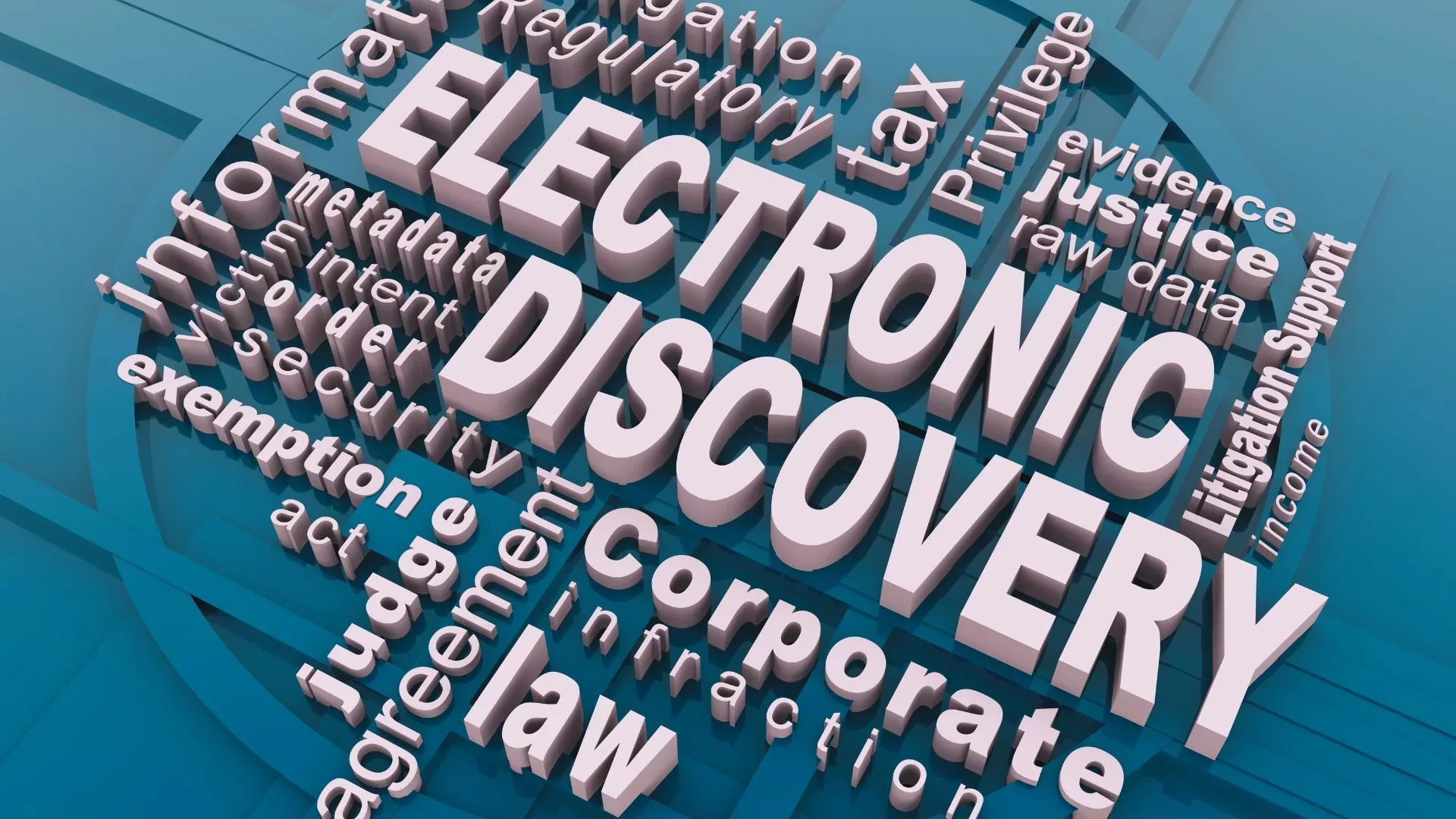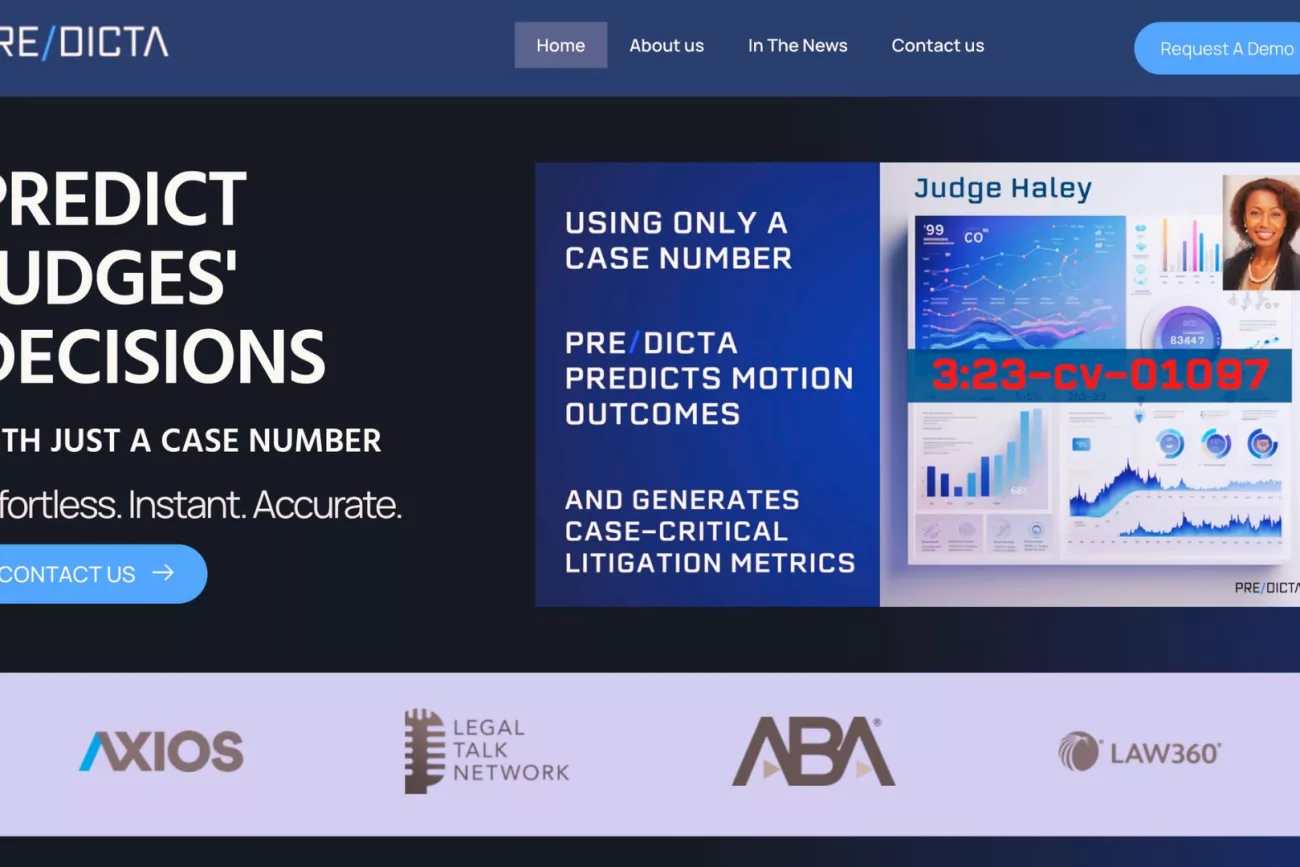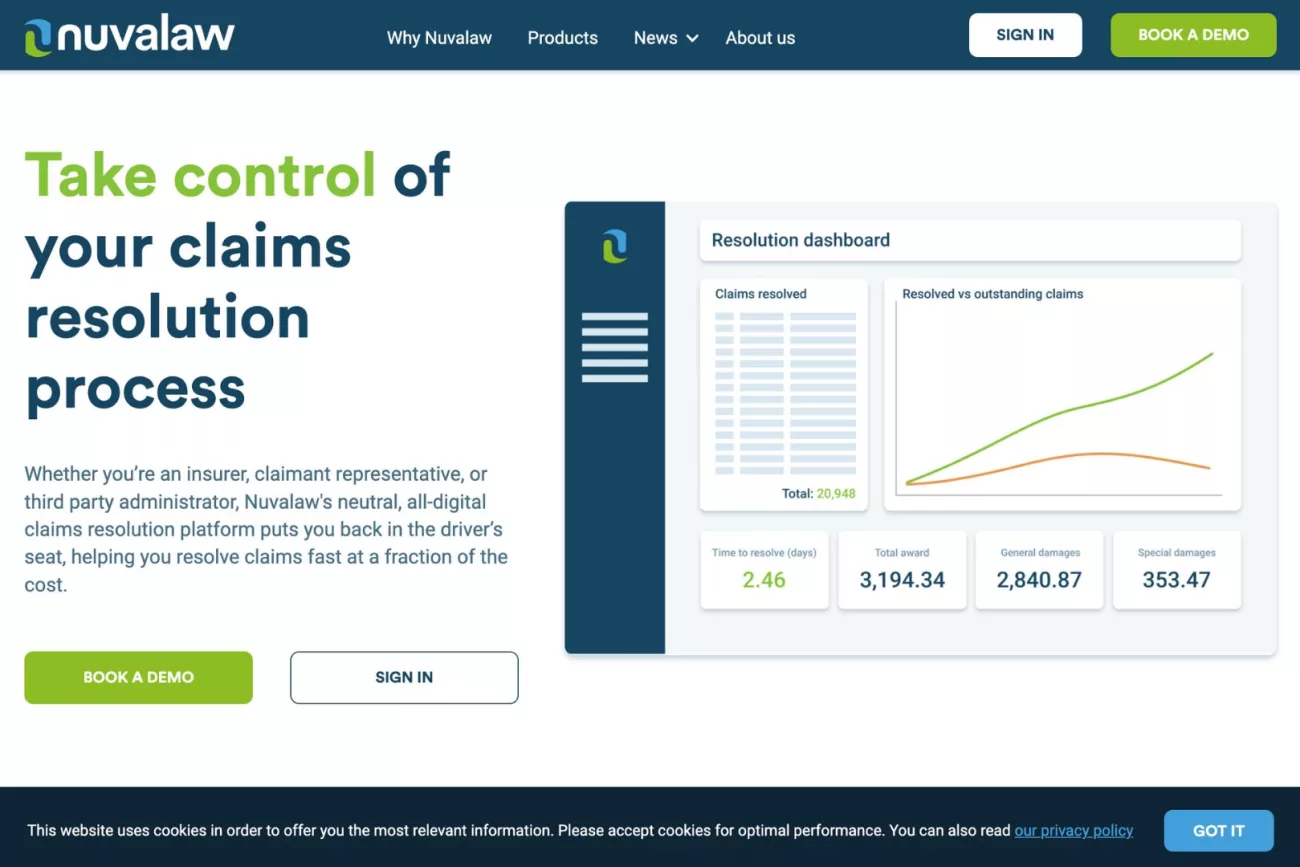
Key Points
- Proactive Risk Identification: eDiscovery services enable attorneys to preemptively pinpoint and mitigate potential legal and operational risks, safeguarding against costly litigation and compliance penalties.
- Data-Driven Strategies: By harnessing the analytical power of eDiscovery, legal professionals can guide businesses in making informed decisions through a comprehensive understanding of available data.
- Compliance Culture Integration: eDiscovery is critical in fostering a culture of compliance, educating stakeholders on regulations, and demonstrating due diligence through automated data management.
- Strategic Litigation Support: eDiscovery provides a strategic advantage in litigation by efficiently identifying, collecting, and analyzing pertinent electronic evidence, thus streamlining the legal process.
Unveiling The Multifaceted Domain of eDiscovery Services: A Comprehensive Dive
Discovering the potent realm of eDiscovery services is akin to embarking on an enlightening voyage through the digital cosmos.
This critical service underpins the essence of legal and corporate landscapes, offering a structured pathway to not only unearth but also meticulously analyze the digital trails embedded within the complex tapestry of modern-day communications.
The subsequent discourse is aimed at offering a well-rounded understanding of eDiscovery services, addressing its intrinsic value, operational nuances, and the indispensable role it plays in fostering a compliant and informed organizational ecosystem.
Introduction to eDiscovery Services
The digital footprint is ever-expanding, and with it burgeons the significance of services that facilitate a structured exploration of this expansive digital terrain.
At the forefront of these services lies the domain of eDiscovery, a service paramount for legal, corporate, and governance frameworks.
This narrative unveils the various facets of eDiscovery services, offering an in-depth understanding of its mechanisms, benefits, and the essential function it performs in modern-day operational landscapes.
Understanding eDiscovery Services: A Practical Guide for Attorneys
In the contemporary legal landscape, the embracement of technology is not just a futuristic proposition but a current necessity.
The domain of eDiscovery services stands as a testament to this assertion, offering a systematic pathway to navigate the burgeoning digital data terrain. As attorneys grapple with an ever-increasing volume of electronic information amidst legal proceedings, the essence of eDiscovery becomes increasingly pronounced.
Let’s delve deeper into understanding eDiscovery services, its core components, the technologies underpinning it, its compliance with the legal framework, and the cost dynamics associated with it.
The Core Components of eDiscovery Services
The eDiscovery process is orchestrated through a sequence of well-defined stages, each critical in ensuring a thorough and compliant discovery of electronic data. Here’s a breakdown of these core components tailored for the legal minds:
- Data Identification: This stage involves the meticulous identification of potential sources of electronic information that might be pertinent to a case. It requires attorneys to liaise with IT specialists to pinpoint where relevant data may reside, be it within organizational servers, cloud storage, employee email accounts, or on physical devices.
- Data Preservation: Post identification, it’s imperative to ensure that the data remains intact and unaltered. Legal holds can be employed to preserve data in its original state, safeguarding against any inadvertent or deliberate alteration or deletion.
- Data Collection: This phase encompasses the aggregation of data from its disparate sources. The objective is to collect the data in a manner that maintains its integrity while ensuring a comprehensive coverage of all potential data sources.
- Data Processing: Post collection, the data is organized, indexed, and filtered to render it searchable and amenable for analysis. This stage also involves the elimination of redundant or irrelevant data, ensuring that only pertinent information is forwarded to the review stage.
- Data Review: Here, the data is meticulously reviewed to ascertain its relevance and privilege concerning the legal matter at hand. Attorneys play a pivotal role in this stage, sifting through the data to identify what could serve as potential evidence.
- Data Production: The final stage involves preparing and presenting the relevant data in a legally acceptable format. This may include converting files into a specified format, redacting sensitive information, and organizing the data in a manner that’s conducive for legal scrutiny.
The Underpinning Technologies
The efficiency and effectiveness of eDiscovery services are significantly bolstered by an array of sophisticated technologies. Understanding these can offer attorneys a technical edge:
- Advanced Search Algorithms: Facilitate the rapid and accurate location of relevant data amidst a vast digital repository.
- Machine Learning and Predictive Coding: These technologies aid in automating the data review process, learning from the input of legal professionals to identify relevant documents with higher accuracy over time.
- Text Analytics: Enables the extraction of meaningful insights from unstructured text data, which constitutes a significant portion of discoverable data.
Compliance and Legal Framework
eDiscovery operates within a complex legal and regulatory framework. Being well-versed with the laws governing eDiscovery, such as the Federal Rules of Civil Procedure (FRCP), can ensure compliance and avert potential legal snags.
Cost Dynamics
The financial commitment associated with eDiscovery services can be substantial. However, understanding the cost structures and exploring options like predictive coding or outsourcing certain eDiscovery tasks can help in optimizing expenses without compromising on the thoroughness of data exploration.
In summary, a robust grasp of eDiscovery services, the underlying technologies, and the legal framework is indispensable for modern-day attorneys. It not only augments the legal process but also positions attorneys to navigate the digital evidentiary landscape with an informed and strategic approach.
The Multifaceted Applications of eDiscovery Services for Attorneys
eDiscovery services have revolutionized the approach attorneys take toward the collection and analysis of evidence in the digital age. As legal practitioners delve into the digital stratum of communication and documentation, the multifaceted nature of eDiscovery services becomes paramount. These services are not merely tools but strategic assets across various legal and compliance-related sectors.
Litigation Support
In the realm of litigation, eDiscovery services provide attorneys with unparalleled support. It allows for the efficient extraction, processing, and review of potentially millions of digital documents, making the task of finding relevant evidence less like searching for a needle in a haystack. Attorneys can use eDiscovery tools to:
- Quickly identify pertinent evidence, such as specific emails or documents, using advanced search capabilities.
- Understand the context of communications through metadata analysis, which can provide insights into the relationships and patterns that might influence a case.
- Prepare evidence that is admissible in court by maintaining a chain of custody and using defensible data collection methods.
Regulatory Compliance
For compliance with regulatory requirements, eDiscovery services are indispensable. Whether it’s the Health Insurance Portability and Accountability Act (HIPAA), the General Data Protection Regulation (GDPR), or any other regulatory body, eDiscovery tools can:
- Monitor and archive communications that may be subject to regulatory scrutiny, such as financial transactions or patient health information.
- Automate compliance checks, ensuring that data handling within an organization adheres to legal standards and policies.
- Facilitate swift responses to regulatory inquiries or audits by quickly locating and presenting the requested information.
Internal Investigations
When it comes to internal investigations, eDiscovery services empower attorneys to conduct them with both depth and discretion. These tools can:
- Identify internal threats or misconduct, such as embezzlement or breaches of company policy, by analyzing email traffic and document access logs.
- Safeguard privacy and privilege by segregating sensitive content and ensuring that only authorized personnel have access to it during the review process.
- Present findings in a coherent format that can be understood by stakeholders and used to make informed decisions about disciplinary actions or policy changes.
Information Governance
In the broader scope of information governance, eDiscovery services are vital in establishing and maintaining order within the vast amounts of data organizations handle. They help in:
- Creating data maps that give insight into what data is held, where, and how it can be accessed, which is critical for risk management and compliance.
- Enforcing retention policies by identifying and disposing of data that is no longer legally required to be retained, thus minimizing storage costs and risks.
- Optimizing data storage and access, ensuring that active data is readily accessible while archiving older, less frequently needed information securely.
By understanding and utilizing the comprehensive suite of capabilities offered by eDiscovery services, attorneys can not only enhance their legal practice but also provide more strategic counsel to their clients. From litigation to compliance, and from internal investigations to information governance, eDiscovery services are a linchpin in the legal profession’s adaptation to the digital world. The integration of these services within legal practices ensures that attorneys remain agile and responsive in the face of the ever-evolving digital landscape.
eDiscovery Services: A Strategic Business Imperative for Legal Professionals
For attorneys, understanding the strategic imperatives of eDiscovery services is crucial. Far beyond the realms of legal obligation, these services are fundamental to the broader business context in which legal professionals operate. eDiscovery is intrinsically linked to risk mitigation, informed decision-making, and the cultivation of a compliance-centric corporate culture.
Risk Mitigation
eDiscovery services are pivotal in preempting and mitigating a variety of risks that modern businesses face. They equip attorneys with the tools to:
- Proactively identify potential legal issues, often before they escalate into costly litigation or regulatory penalties.
- Secure sensitive data amidst rising cybersecurity threats, using eDiscovery tools to locate and protect vulnerable information.
- Ensure business continuity by establishing clear protocols for data management in the face of potential data breaches or legal disputes.
Informed Decision-Making
Data is the lifeblood of strategic decision-making, and eDiscovery services play a critical role in extracting actionable insights from this data. Through eDiscovery, attorneys can:
- Synthesize vast quantities of information into comprehensible formats, enabling business leaders to make decisions based on a holistic view of available data.
- Spot trends and patterns within organizational data that can lead to operational improvements or identify areas of concern before they become systemic issues.
- Enhance legal strategy with empirical evidence, leading to more nuanced and effective legal arguments and negotiations.
Fostering a Compliance Culture
At the intersection of law and business, eDiscovery services are instrumental in embedding a culture of compliance within organizations. Attorneys can leverage these services to:
- Educate stakeholders about the importance of compliance, using real data to illustrate potential risks and the value of adherence to policies and regulations.
- Streamline compliance processes by automating data retention, legal holds, and data privacy protocols.
- Demonstrate due diligence to regulatory bodies, showcasing the organization’s commitment to compliance through detailed eDiscovery practices.
eDiscovery services, therefore, are not just tools for litigation; they are strategic assets that provide attorneys with a comprehensive approach to managing and utilizing data in a manner that supports robust business operations, mitigates risk, and fosters an informed, compliance-oriented organizational culture. As data continues to proliferate at an unprecedented rate, the ability to effectively manage and analyze this data through eDiscovery will increasingly become a differentiator for legal professionals and the businesses they advise.
Here are a few top contenders for eDiscovery services tailored for attorneys:
Nextpoint: A cloud-based eDiscovery platform assisting legal organizations in reviewing documents, finding information, filtering data, and streamlining legal documentation. It offers a centralized repository for search and review processes1.
Logikcull: This service addresses the challenge of data overload in disputes and investigations, aiming to simplify discovery despite the noise created by 97% irrelevant data2.
Digital WarRoom: Available both as a cloud-based and on-premise platform, it aids law firms and individual users in processing, reviewing, and producing documents with a user-friendly drag-and-drop interface3.
Lexbe eDiscovery Platform: A case management solution designed to streamline the entire litigation lifecycle for litigation lawyers and support staff, from organizing or reviewing legal documents to handling client relationships4.
Discovery Assistant: An on-premise tool aiding in capturing, processing, and retrieving data from electronic documents with the help of optical character recognition (OCR) features5.
MailMeter: An email archiving and compliance solution assisting businesses in in-depth searching and analysis for compliance, public records, and eDiscovery on past email activities6.
Consilio: Provided by Consilio, Sightline offers advanced data exploration, end-to-end document review, and analytics-driven investigation tools to assist case teams in finding the right case data or document7.
Each of these platforms has its unique features and pricing structures, and it might require a closer look to determine which one aligns best with your specific needs and budget.
The Future of eDiscovery Services
The narrative traversed through the expansive realm of eDiscovery services, shedding light on its operational mechanics, the myriad applications, and the indispensable value it brings to the modern organizational table. As digital interactions continue to burgeon, the essence of eDiscovery services is poised to become increasingly salient, rendering it a non-negotiable facet of legal, corporate, and governance frameworks.
Share this post
Frequently Asked Questions (FAQs)
Q: How does eDiscovery differ from traditional discovery processes?
A: eDiscovery distinguishes itself from traditional discovery by focusing on the extraction and management of electronic data, which is more complex and voluminous than paper records. It involves advanced technological tools to handle data that is dynamic, easily replicated, and often scattered across various digital platforms.
Q: What are the key steps involved in the eDiscovery process?
A: The key steps in the eDiscovery process include identifying potential sources of electronic data, preserving the integrity of that data, collecting and processing it for review, analyzing it for relevance and privilege, and finally producing the pertinent data in a legally compliant format.
Q: How do organizations benefit from employing eDiscovery services?
A: Organizations benefit from eDiscovery services through more efficient legal proceedings, reduced risk of data mismanagement, improved compliance with regulations, and enhanced ability to make informed business decisions based on accurate data analysis.
Q: What types of data can be uncovered through eDiscovery?
A: eDiscovery can uncover a wide array of data types, including emails, text messages, documents, databases, audio and video files, social media posts, and web-based content, among others.
Q: How does technology bolster the eDiscovery process?
A: Technology bolsters the eDiscovery process by utilizing advanced search algorithms, predictive coding, and machine learning to automate and refine the search, collection, and analysis of vast quantities of digital data, making the process faster and more accurate.
Q: What considerations should be made when selecting an eDiscovery service provider?
A: When selecting an eDiscovery service provider, consider their technological capabilities, experience with compliance and legal frameworks, ability to handle the specific data types relevant to your needs, reputation for security and privacy, and their overall cost structure.















